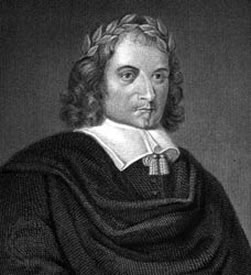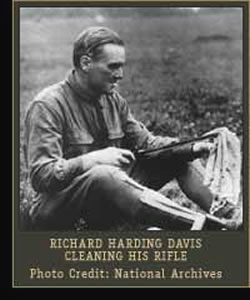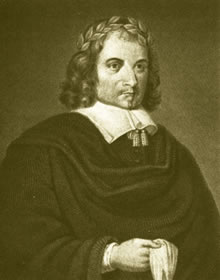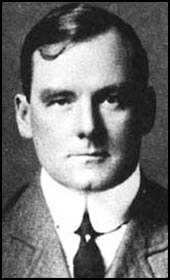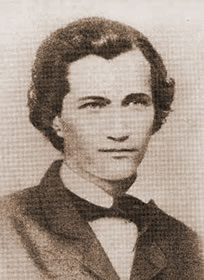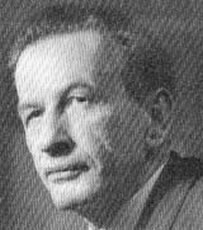De Amerikaanse journalist en schrijver Richard Harding Davis werd geboren op 18 april 1864 in Philadelphia. Zie ook mijn blog van 18 april 2007 en ook mijn blog van 18 april 2009.
Uit: Soldiers of Fortune
„A year before Mrs. Porter’s dinner a tramp steamer on her way to the capital of Brazil had steered so close to the shores of Olancho that her solitary passenger could look into the caverns the waves had tunnelled in the limestone cliffs along the coast. The solitary passenger was Robert Clay, and he made a guess that the white palisades which fringed the base of the mountains along the shore had been forced up above the level of the sea many years before by some volcanic action.
Olancho, as many people know, is situated on the northeastern coast of South America, and its shores are washed by the main equatorial current. From the deck of a passing vessel you can obtain but little idea of Olancho or of the abundance and tropical beauty which lies hidden away behind the rampart of mountains on her shore. You can see only their desolate dark-green front, and the white caves at their base, into which the waves rush with an echoing roar, and in and out of which ¦y continually thousands of frightened bats.
The mining engineer on the rail of the tramp steamer observed this peculiar formation of the coast with listless interest, until he noted, when the vessel stood some thirty miles north of the harbor of Valencia, that the limestone formation had disappeared, and that the waves now beat against the base of the mountains themselves. There were five of these mountains which jutted out into the ocean, and they suggested roughly the five knuckles of a giant hand clenched and lying flat upon the surface of the water. They extended for seven miles, and then the caverns in the palisades began again and continued on down the coast to the great cliffs that guard the harbor of Olancho’s capital.
“The waves tunnelled their way easily enough until they ran up against those five mountains,” mused the engineer, “and then they had to fall back.” He walked to the captain’s cabin and asked to look at a map of the coast line. “I believe I won’t go to Rio,” he said later in the day; “I think I will drop off here at Valencia.”
Richard Harding Davis (18 april 1864—11 april 1916)
De Australische dichter Henry Kendall werd geboren op 18 april 1839 in Milton. Zie ook mijn blog van 18 april 2007 en ook mijn blog van 18 april 2008 en ook mijn blog van
18 april 2009.
A Day of Dream
On that bold hill, against a broad blue stream,
stood Arthur Phillip on a day of dream;
what time the mists of morning westward rolled
and heaven flowered on a bay of gold.
Here, in the hour that shines and sounds afar,
flamed first Old England’s banner like a star;
Here in a time august with prayer and praise,
was born the nation of these splendid days,
and here, this land’s majestic yesterday
of immemorial silence died away
Amongst the Roses
I walked through a Forest, beneath the hot noon,
On Etheline calling and calling!
One said: “She will hear you and come to you soon,
When the coolness, my brother, is falling.”
But I whispered: “O Darling, I falter with pain!”
And the thirsty leaves rustled, and hissed for the rain,
Where a wayfarer halted and slept on the plain;
And dreamt of a garden of Roses!
Of a cool sweet place,
And a nestling face
In a dance and a dazzle of Roses.
In the drought of a Desert, outwearied, I wept,
O Etheline, darkened with dolours!
But, folded in sunset, how long have you slept
By the Roses all reeling with colours?
A tree from its tresses a blossom did shake,
It fell on her face, and I feared she would wake,
So I brushed it away for her sweet sake;
In that garden of beautiful Roses!
In the dreamy perfumes
From ripe-red blooms
In a dance and a dazzle of Roses.

Henry Kendall (18 april 1839 – 1 augustus 1882)
De Engelse dichter en schrijver Thomas Middleton werd in Londen geboren en daar gedoopt op 18 april 1580. Zie ook mijn blog van 18 april 2007 en ook mijn blog van 18 april 2009.
Uit: The Changeling
Thomas Middleton
„Deflores. What makes your lip so strange? This must not be betwixt us.
Beatrice. The man talks wildly.
Deflores. Come kisse me with a zeal now.
Beatrice. Heaven I doubt him.
Deflores. I will not stand so long to beg ‘em shortly.
Beatrice. Take heed Deflores of forgetfulness, ’twill soon betray us.
Deflores. Take you heed first;
Faith y’are grown much forgetfull, y’are to blame in’t.
Beatrice. He’s bold, and I am blam’d for’t.
Deflores. I have eas’d you of your trouble, think on’t, I’me in pain,
And must be as’d of ou; ’tis a charity,
Justice invites your blood to understand me.
Beatrice. I dare not.
Deflores. Quickly.
Beatrice. Oh I never shall, speak if yet further of that I may lose
What has been spoken, and no sound remain on’t.
would not hear so much offence again for such another deed.
Deflores. Soft, Lady, soft; the last is not yet paid for, oh this act
Has put me into spirit; I was as greedy on’t
As the parcht earth of moisture when the clouds weep.
Did you ot mark, I wrought my self into’t.
Nay sued, and kneel’d for’t: Why was all that pains took?
You see I have thrown contempt upon your gold,
Not that I want it, for I doe piteously,
In order I will come unto’t, and make use on’t,
But ’twas not held so pretious to begin with;
For I place wealth after the heels of pleasure,
And where I not resolv’d in my belief
That thy virginity were perfect in thee,
I should but take my recompense with grudging,
As if I had but halfe my hopes I agreed for.“

Thomas Middleton (18 april 1580 – 4 juli 1627)
Onafhankelijk van geboortedata:
De Zwitserse schrijver Roman Graf werd geboren geboren in 1978 in Winterthur, Zwitserland. Hij voltooide een opleiding tot boswachter, werkte met gehandicapten op een school en als journalist. Daarnaast studeerde hij Media / Journalistiek aan de Hogeschool voor Toegepaste Taalkunde (SAL) in Zürich en behaalde hij een diploma aan het Deutsche Literaturinstitut Leipzig. Hij leidde een workshop schrijven voor studenten germanistiek in Osijek, Kroatië. Tegenwoordig is hij als freelance schrijver woonachtig in Leipzig en Winterthur. In 2009 verscheen zijn debuutroman Herr Blanc.
Uit: Herr Blanc
„Das Thermometer zeigte zweiunddreißig Grad, am Himmel war weder ein Wölkchen noch eine Schliere zu sehen, und obwohl der Wind schon seit Stunden weit stärker wehte als üblich, war nicht zu erwarten, dass er eine Regenwolke bringen würde. Seit Wochen war es so heiß und so schön, kein Tropfen Regen war gefallen, und das sollte laut Wetterbericht auch die nächsten Wochen so bleiben.
Von den Anstrengungen erschöpft, die das Lesen und Umblättern bei dieser Hitze bereiteten, faltete Herr Blanc die Zeitung zusammen, in der er von den Beitrittsverhandlungen Rumäniens zur Europäischen Union gelesen hatte, nahm die Beine vom Lederhocker herunter und rief, die Zeitung auf die Knie gelegt und mit dem Handrücken den Schweiß von der Stirn streichend, in die Küche:
»Vreni, der Tee!«
Er war verärgert. Vor einer Viertelstunde hatte er in die Küche gehen und sich ein Glas Eistee holen wollen, doch in dem Moment, als er im Begriff gewesen war, sich zu erheben, war Vreni zu ihm in die Stube getreten und hatte ihn gefragt, ob er etwas trinken wolle. Er dachte, dass sie so oder so in die Küche gehen müsse und sich danach zu ihm in die Stube setzen würde, und so antwortete er, dass er gerne einen Eistee hätte. Doch Vreni brachte den Eistee nicht. Nach fünf Minuten des Wartens hatte er in die Küche gerufen, ob er sich den Tee selber holen solle, und Vreni hatte unverzüglich und mit klarer Stimme geantwortet, sie werde ihn gleich bringen. Er war sehr durstig. Nun war bereits eine Viertelstunde vergangen, und er rief noch einmal nach dem Tee.
Aus der Küche war wieder die gleiche wohlklingende Stimme zu hören: »Ich bringe ihn gleich.«
»Verdammt noch mal«, murmelte er vor sich hin. Er brauchte dringend etwas zu trinken. Seit seiner frühesten Kindheit hatte er Heuschnupfen, und an Tagen mit hohen Temperaturen und starkem Wind musste er sich nicht nur ständig die Augen reiben, sondern auch viel trinken.“
Roman Graf (Winterthur, 1978)
Zie voor onderstaande schrijver ook mijn blog van 18 april 2007 en ook mijn blog van 18 april 2008.
De Duitse schrijver Udo Werner Steinberg werd geboren op 18 april 1913 in Neurode.
















